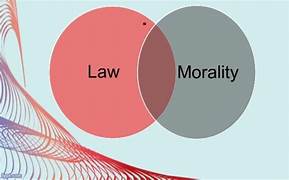
Walking the Thin Line: Defendable Crimes and the Intersection of Morality and Law
In the realm of criminal justice, there exists a complex and delicate balance between the principles of morality and the established laws of society. At times, this balance becomes particularly challenging when individuals find themselves engaged in what are perceived as defendable crimes. These are acts that, while technically illegal, may be justified or excused due to circumstances such as self-defense, necessity, or protection of others. This article aims to delve into the intricate interplay between morality and the law when it comes to defendable crimes, exploring the ethical dilemmas faced by individuals and legal professionals navigating this contentious terrain. Gain more here.
The Grey Area of Defendable Crimes
Defendable crimes occupy a distinct gray area within the criminal justice system. These are situations where the law and morality appear to clash, forcing individuals to make difficult choices. Examples include actions taken in self-defense to protect one’s life or physical well-being, instances of civil disobedience driven by a higher moral cause, or even acts committed in dire circumstances where the individual believes they have no other choice. Such cases challenge the very foundations of legal principles, leading to debates regarding the extent to which personal morality should supersede the letter of the law.
Self-Defense and Moral Justification
One of the most prominent areas where the intersection of morality and law is evident is in cases of self-defense. When an individual faces an immediate threat to their life or safety, laws often grant them the right to defend themselves, even if it means causing harm to the aggressor. However, questions arise when considering the proportionality of the response. Does the act of self-defense still align with societal and moral norms if the level of force used exceeds what is strictly necessary to protect oneself? This dilemma forces us to examine the balance between preserving personal safety and respecting the inherent value of human life.
Necessity as a Defense
Necessity as a defense further highlights the complex nature of defendable crimes. In certain situations, individuals may commit acts that would typically be considered illegal to prevent a greater harm from occurring. For instance, a person might trespass on private property to save a life during an emergency. While their actions may be morally justified, they technically violate the law. This raises fundamental questions about the role of morality in shaping legal norms and the extent to which the law should accommodate exceptional circumstances driven by a genuine need to avert harm.
Civil Disobedience and Moral Courage
Civil disobedience is yet another facet of defendable crimes that challenges the boundaries of morality and law. History has shown us that individuals motivated by strong moral convictions may deliberately violate certain laws to protest against perceived injustices. While these acts may be illegal, they serve as a powerful means to shed light on systemic issues and effect social change. The moral courage required to defy the law for the sake of a higher ethical cause brings forth thought-provoking questions about the role of morality in shaping our legal systems and the duty of citizens to challenge laws they deem unjust.
The Role of Defense Attorneys
In the intricate landscape of defendable crimes, defense attorneys play a crucial role as advocates for their clients. They must navigate the fine line between legality and morality, ensuring that their clients’ rights are protected while upholding the principles of justice. Defense attorneys face the challenge of crafting persuasive arguments that highlight the moral justifications behind their clients’ actions, seeking to influence both legal proceedings and public opinion. Their task is to remind society that the law should not be blindly followed when it conflicts with deeply held ethical values.
Conclusion
The interplay between morality and the law in defendable crimes is a multifaceted and thought-provoking subject. It forces us to critically examine the inherent tension between individual moral judgments and societal legal frameworks. While the law provides a necessary structure for maintaining order and justice, there are instances where morality calls for exceptions or challenges existing norms. Understanding and navigating this complex intersection requires a nuanced approach that recognizes the importance of ethics and individual conscience. By exploring defendable crimes, we are compelled to reflect on the limitations of the law, the power of personal morality, and the ongoing dialogue necessary for a just and equitable society.







